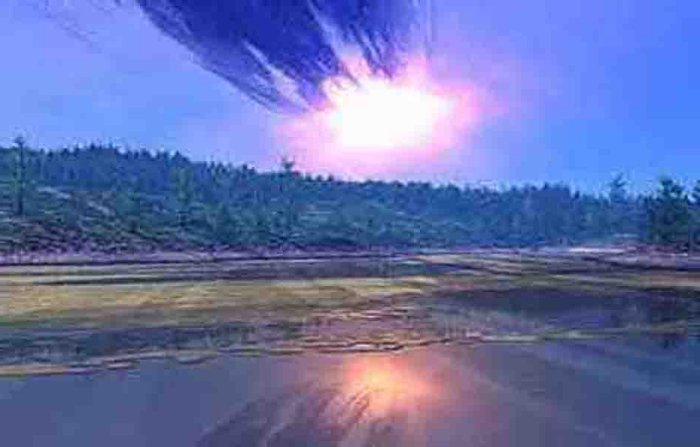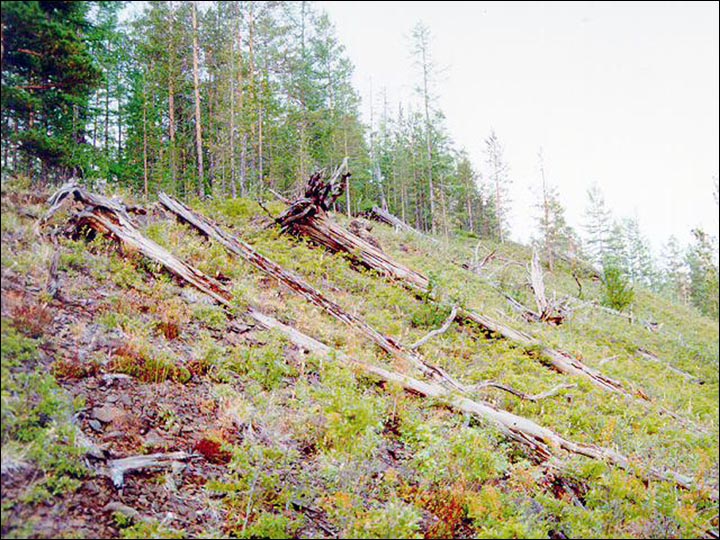

The shock apparently reverberated such that it was detected as far away as Britain, and the thing was, this was World War II (editors note: World War I) time period, this was right before the Russian Revolution, and no one really actually went to see what all the fuss was caused by. This part of Siberia - it’s north of Lake Baikal which is one of the clearest, cleanest lakes in the world, an area where there were still people who lived by herding reindeer to eat - no real cities, no real anything, and out of nowhere at 7:14 in the morning, something streaked across the sky, reportedly as bright as the Sun, and then exploded knocking people off their feet, breaking windows. Pamela: Well, it was an otherwise perfectly normal summer in an utterly isolated part of the world.

What could release that kind of destructive energy, and will it happen again? So Pamela, can you, like, set the stage and tell us about this unbelievable event that happened in Siberia? And so today’s episode was…came from a fan, and they said they wanted a show on Tunguska and – sorry, I don’t remember who it was, but um, I remember someone asked for it, and we said that sounds like a great ideaįraser: OK then, so on Jsomething exploded over the Tunguska region of Siberia flattening thousands of square kilometers of forest and unleashing a force that rivaled the most powerful nuclear weapon ever detonated.
#TUNGUSTA METEORITE PLUS#
So super-fun, but you gotta be in Google plus to do it. We’re serious, we’re serious we’re sorry, and we’re way ahead of schedule now.įraser: And as always we are recording this episode as a Google plus hang-out, and so if you want to participate in a live recording of Astronom圜ast, all you have to do is circle me or Pamela in Google plus, and then we’ll, sort of, make a mention of when it’s going to happen, and then you can jump in and join the hang-out and ask us questions and watch us record the show, and then stick around afterward and we’ll answer questions until we’re tired. We’re actually recording in early December shows for mid-December and even late December, and that is how dedicated we are to getting this show back on track.

How are you doing?įraser: Doing really well. Pamela Gay, a professor at Southern Illinois University – Edwardsville. My name is Fraser Cain I’m the publisher of Universe Today, and with me is Dr. Fraser: Welcome to Astronom圜ast, our weekly facts-based journey through the Cosmos, where we help you understand not only what we know, but how we know what we know.


 0 kommentar(er)
0 kommentar(er)
